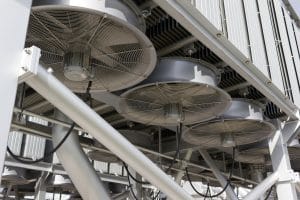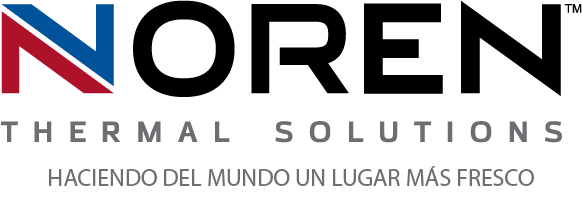 It wasn’t very long ago that air conditioning technology was the go-to solution for controlling the waste heat that electrical control panels and other enclosures emit. After all, keeping enclosures cool is exactly what air conditioners were designed to do. Today, there are still some applications in which air conditioning or air compressing technology is still the most effective thermal management solution. However, for the most part, air conditioners can no longer reach the levels of efficiency and efficacy that modern heat exchangers provide.
It wasn’t very long ago that air conditioning technology was the go-to solution for controlling the waste heat that electrical control panels and other enclosures emit. After all, keeping enclosures cool is exactly what air conditioners were designed to do. Today, there are still some applications in which air conditioning or air compressing technology is still the most effective thermal management solution. However, for the most part, air conditioners can no longer reach the levels of efficiency and efficacy that modern heat exchangers provide.
Effective but Cumbersome
One of the biggest drawbacks of air conditioners is that the equipment involved in each unit is often too large to fit into smaller, more powerful technological designs. They can chill the air in an enclosure, but are ineffective if they can’t fit comfortably into a system’s design. For applications that are large enough to accommodate the units, air conditioners can still prove cumbersome in other areas. For instance, air conditioners require exorbitant amounts of energy to run on a continuous basis, as well as constant maintenance and frequent downtimes for repair.
The Innovation of Heat Exchangers
One of the biggest advantages of heat exchangers is that they don’t require complicated equipment to operate. Heat exchangers don’t blast cold air through an enclosure like air conditioning does. Instead, it redirects electrical waste heat away from sensitive electrical components, keeping the temperature inside of the enclosure at just above the ambient temperature outside. For applications that require cooler temperatures, below-ambient heat exchangers can achieve those temperatures without the need for complex air conditioning equipment.
To learn more, call Noren Thermal, Inc. in Taylor, TX, today at 866-936-6736.







